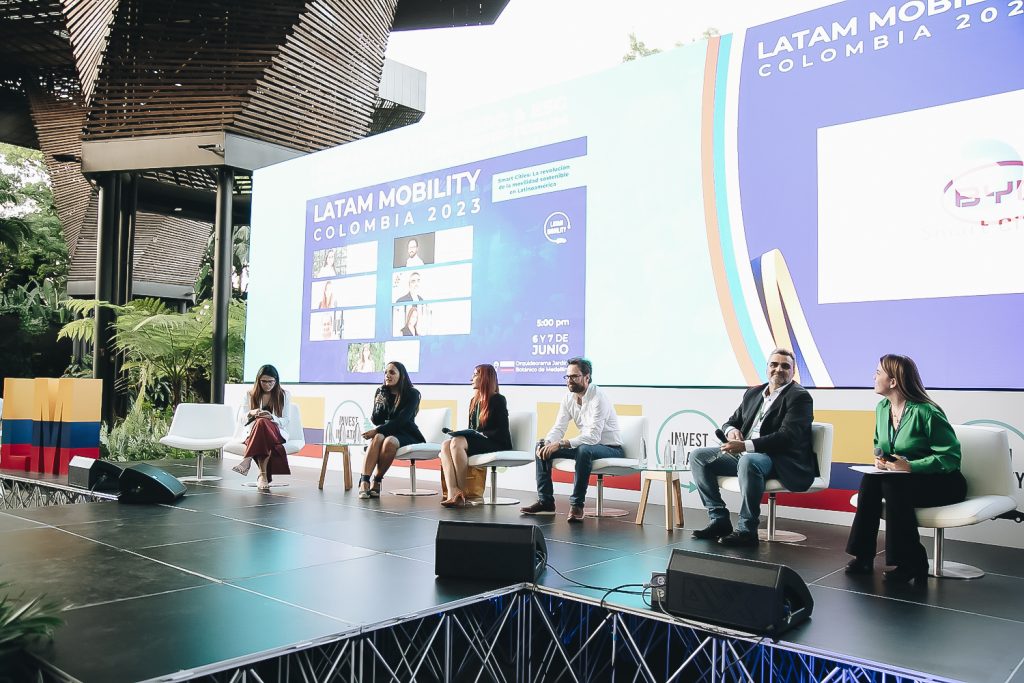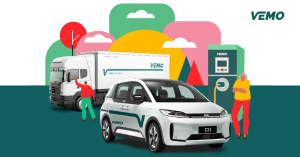
Alamos, Dhemax, GoPass, Movilidad Bogotá and the Ministry of Digital Transformation Introduce Strategies to Boost Smart Cities.

Technology represents a key factor for the growth and modernization of cities in Latin America, which is why the “Latam Mobility: Colombia 2023“, was the setting for the panel “Smart Cities: The Sustainable Mobility Revolution in Latin America“.
Leading personalities from the public sector and prestigious private companies participated in the forum to present perspectives and strategies to achieve the digitization of the region’s metropolises and in turn provide quality of life.
The Vice Minister of Digital Transformation of Colombia, Nohora Mercado, stressed that from the government institution is developing a hard work to contribute to the great ecosystem of transformation of cities.
“From the ministry we have a digital government policy that since last year with resolution 1117-2022, we promote smart territories, it is a strategy of sustainability and inclusion that has three focuses: society, strengthen the economy and contribute to the environmental issue.”
Mercado explained that the big challenges are inclusion and closing the digital gap that exists. “In urban areas we think we are connected, but when we go to the rural areas there are no inclusion processes. We have to generate opportunities for connection and drive the transformation that is needed.”
Related content: Alliance between Metro de Medellin and Daviplata Provides Life Quality through Integrated and Efficient Transportation
Among the plans being developed by the ministry, the official detailed that they are working on an integrated platform to connect IOT devices and support entities with implementation of sensors, smart traffic light initiatives, since the data collected through these processes is important for decision making.
“We want to support organizations with data analytics platforms. As cities become more populated, the greater the need for them to be more efficient, agile and less polluting,” concluded Mercado.

Bogota’s Leadership
The city of Bogota has received awards from various prestigious organizations for its high standards of sustainability and mobility. Part of this success is led by the capital’s authorities through strategies and public policies.
Lorena Aristizábal, International Cooperation Leader of the District Mobility Secretariat of Bogotá, explained that the city is conceived from pillars such as sustainable development, sustainability and sustainable mobility.
“In our plan we are incorporating that the city is smarter and offers quality of life, so the transport offer must be adapted to the conditions of the cities and population,” she said.
She highlighted that Bogota is a leader in fleet transformation and diversification of transportation with the construction of Metro lines, Regiotrans, green corridors, aerial cables, among others.
“We have made a great effort to boost interoperability, capitalizing energies to connect the city and include pedestrians and cyclists. We are the city with the most cycling infrastructure in Latin America with more than 600 kilometers,” Aristizabal stressed.
Dhemax and Almost Two Decades of Electromobility
Andrés De La Jara, KAM of Electromobility at Dhemax, contributed his experience in “Latam Mobility: Colombia 2023“. The company has a track record of 18 years with solutions in software and IOT for electromobility and energy management.
“We have been working in electromobility for many years with great orientation and expertise in the business. Our first project was born in 2008, and in 2014, we started with projects in fleets, always oriented to electroterminals and public transport,” he explained.
Dhemax is a pioneer in the development of electroterminals in Chile and Uruguay with the support of Enel X. Likewise, in Colombia they have supported energy supply issues for public transportation such as Transmilenio, La Rolita, among others.
The GoPass Digital Solution
Jorge Miguel Camacho Paz, CEO of GoPass Colombia, highlighted the importance of the digitization of public transport tickets, taking into account that around 70% of the tickets in the country are still physical.
“In Latin America, there are many difficulties in the transition of ticketing, which we consider in ample opportunities to innovate, payments continue to be made in cash,” he said.
“We have revolutionized the way Colombians move on the roads. The street has become hostile to the ordinary citizen and technology helps us make it friendlier,” he added.
Camacho highlighted that GoPass has done key work with more than 300 parking lots that facilitate and generate great social impact and environmental contribution. “There are great private initiatives that in some cases have had a lot of public support.”
Alamos and Civil Society’s Impact
Silvia Rojas, President of the Latin American Association for Sustainable Mobility (Alamos) and member of the Costa Rican Electric Mobility Association, stressed the importance of unions, organizations and civil society in promoting electromobility.
“Electric mobility allows us to have efficient digitized cities, that gives us a great opportunity. An electric bus gives us accessibility, brings us ramps for disability, electronic payment, that allows data generation and that the authorities have information to make better decisions for users,” she explained.
For Rojas, it is essential to have electric public transportation because it is a fundamental aspect to modernize cities and impact the dynamics of large metropolises.
“The great challenge is to have accessible, modern and zero-emission transportation,” she concluded.





